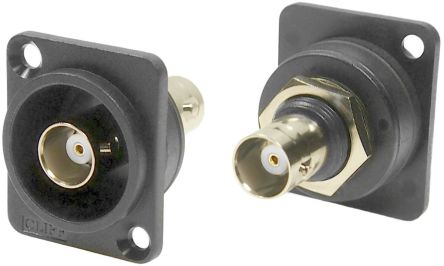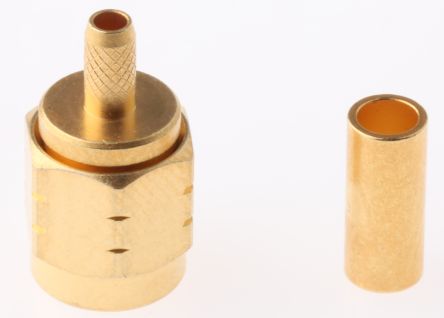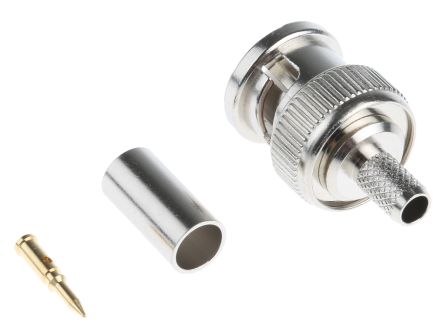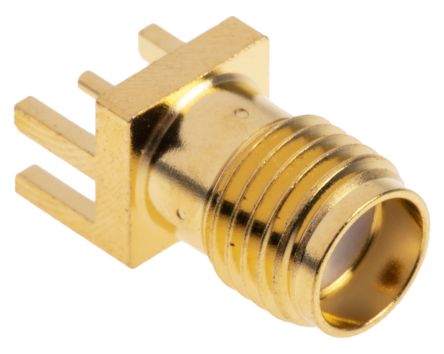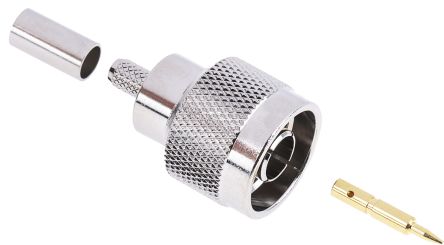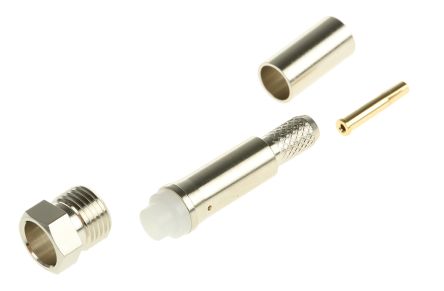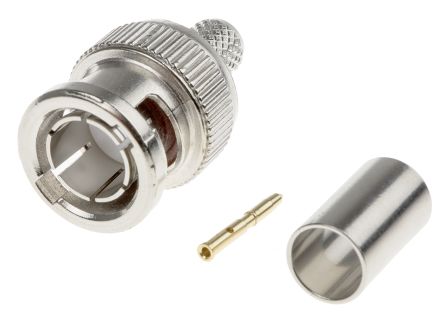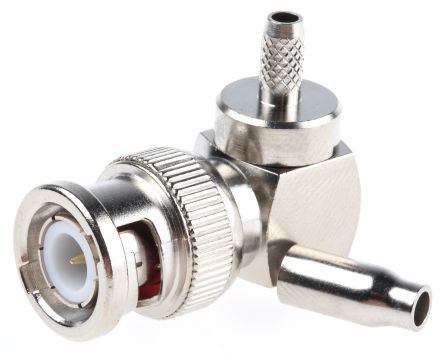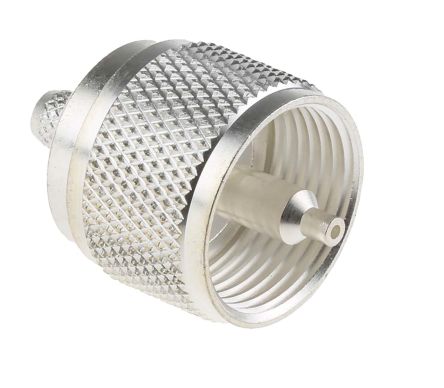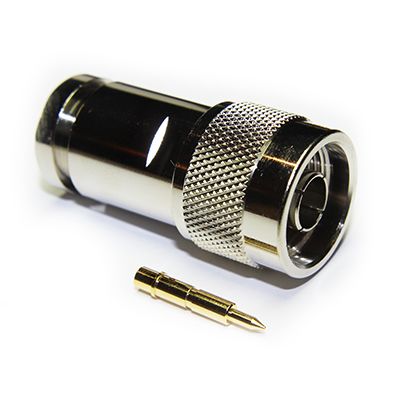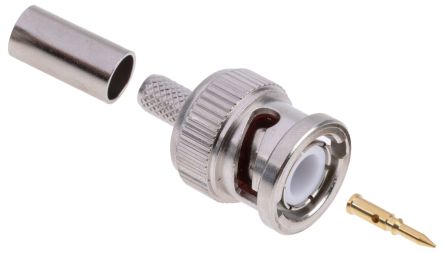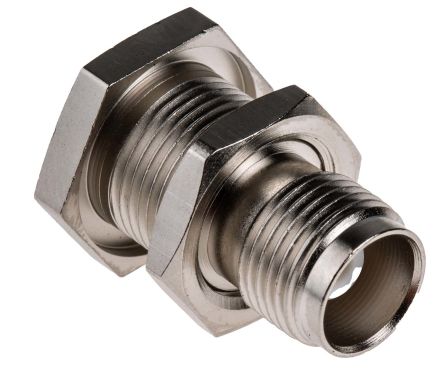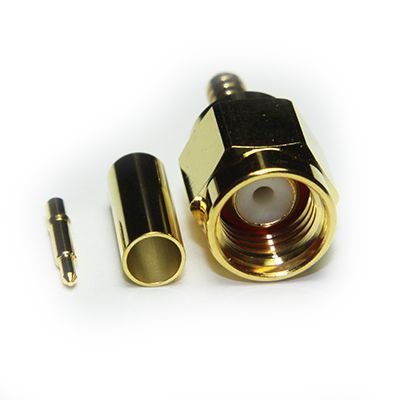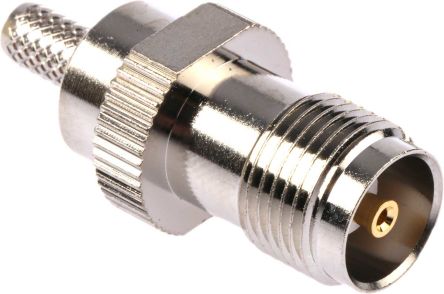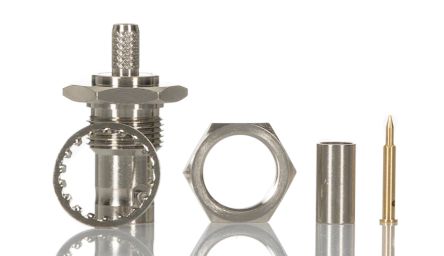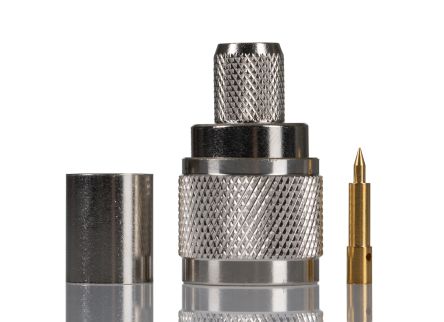- Automation & Control Gear
- Cables & Wires
- Enclosures & Server Racks
- Fuses & Circuit Breakers
- HVAC, Fans & Thermal Management
- Lighting
- Relays & Signal Conditioning
- Switches
- Batteries & Chargers
- Connectors
- Displays & Optoelectronics
- ESD Control, Cleanroom & PCB Prototyping
- Passive Components
- Power Supplies & Transformers
- Raspberry Pi, Arduino, ROCK, STEM Education & Development Tools
- Semiconductors
Coaxial Connectors
Coaxial connectors, also known as RF connectors, are crucial electrical connectors used to connect coaxial cables with electronic devices. These connectors are specifically designed to carry high-frequency signals over considerable distances with minimal signal loss, ensuring reliability and efficiency in various applications, from telecommunications to data transmission. Commonly known by multiple names such as RF cable connectors, pulse coaxial connectors, or simply coax connectors, these devices are pivotal in maintaining the integrity and performance of communication networks.
The design of coaxial connectors accommodates a wide array of configurations to suit diverse operational requirements. They vary by mounting type, with options like PCB mount for direct attachment to printed circuit boards and cable mount for connecting directly to the cable itself. Impedance levels are critical in matching with the coaxial cable to prevent signal reflection, typically available in standard 50 Ohm and 75 Ohm configurations suitable for different types of digital and analogue signals.
Termination methods also vary, including:
- Crimp: Offering a durable and reliable connection, crimp connectors are widely used for their robustness, especially in environments where the connector is not subjected to frequent disconnections.
- Solder: Providing a permanent and secure connection, soldering is preferred in situations requiring superior signal integrity.
- Twist-on: These connectors are easy to install without the need for specialised tools, ideal for quick field service applications and temporary setups.
What Do Coaxial Connectors Do?
Coaxial connectors are designed to maintain the coaxial structure of cables, which includes an inner conductor surrounded by an insulating layer and an outer conductive shield. This configuration allows coaxial connectors to facilitate high-frequency signal transmission with minimal loss over long distances. The connectors ensure that the shielding is continuous across the connection, which is crucial for preventing signal leakage and interference from external electromagnetic fields.
The operating principle behind coaxial connectors involves preserving the coaxial cable's structure through the connector. This ensures impedance matching between the cable and the connectors, a critical factor in minimising signal reflection and attenuation at higher frequencies. The connectors typically use either a screw, bayonet, or snap-on coupling mechanism, which helps in maintaining a stable and secure connection that can resist environmental and operational stresses.
Common Coaxial Cable Sizes and Connector Matching
Coaxial cables come in various sizes, and each size requires a specific type of connector to ensure optimal performance. Common sizes include:
- RG-6: Widely used in cable television, internet, and VOIP phone systems because of its larger diameter and enhanced shielding, which provides better performance over long distances.
- RG-59: Common in older CCTV installations and as a connector for RF signals due to its flexibility and adequate shielding.
- RG-58: A thinner cable that is often used in radio communications and thin Ethernet networks where shorter runs are typical.
Choosing the right coaxial connector for a coaxial cable involves considering factors such as the cable’s impedance (typically 50 or 75 ohms), the frequency of operation, and the environmental conditions under which the cable will operate. For example, a 75-ohm connector would be used for broadcast and internet applications where higher bandwidth and data rates are needed. In contrast, a 50-ohm connector might be more suitable for radio and data communications where lower signal loss is required.
Applications
Coaxial connectors are vital in a wide range of applications, from consumer electronics to sophisticated industrial systems. They are particularly crucial in sectors such as:
- Laboratory and Testing: Ensuring precise measurements and data integrity.
- Telecommunications: Including base stations and antenna configurations.
- GPS and Network Systems: Reliable connections for navigation and data transmission.
- Industrial Electronics: Robust connectors like SMB and TNC types offer durability in harsh environments.
Types of Coaxial Connectors
There are various types of coaxial connectors available, and each type has its unique features and can be used in different applications depending on factors such as frequency range, impedance, power handling and environmental conditions such as temperature and humidity. Popular types include:
- BNC Connectors: Commonly used in video and RF applications, these connectors are easy to install and remove.
- SMA (Subminiature Version A) Connectors: Ideal for high-frequency applications, SMA connectors are common in wireless telecommunications and satellite systems such as radio, GPS, and wireless networks.
- N Connectors: Designed for high-power applications, such as radio transmission, these connectors handle higher power and are suitable for outdoor environments.
- TNC Connectors: Similar to BNC connectors but with a threaded connector for outdoor applications, providing a secure connection.
- F Connectors: Primarily used in television and satellite connections, these connectors are designed to conduct electrical signals for coaxial cables and satellite systems.
- SMB (Subminiature Version B) Connectors: Often employed in industrial electronics and telecom equipment due to their compact size and reliability.
Buying Coaxial Connectors: Ordering & Delivery Information for Australia
RS offers prompt and reliable delivery across Australia, ensuring that your electrical needs, from coaxial cables to power converters, are met efficiently. Whether you need coaxial connectors from industry-leading brands like RS PRO, Amphenol RF, Huber+Suhner, Molex, or TE Connectivity, our delivery services are designed to meet your needs. For more details on our delivery options and fees, please visit our Delivery Information page.
